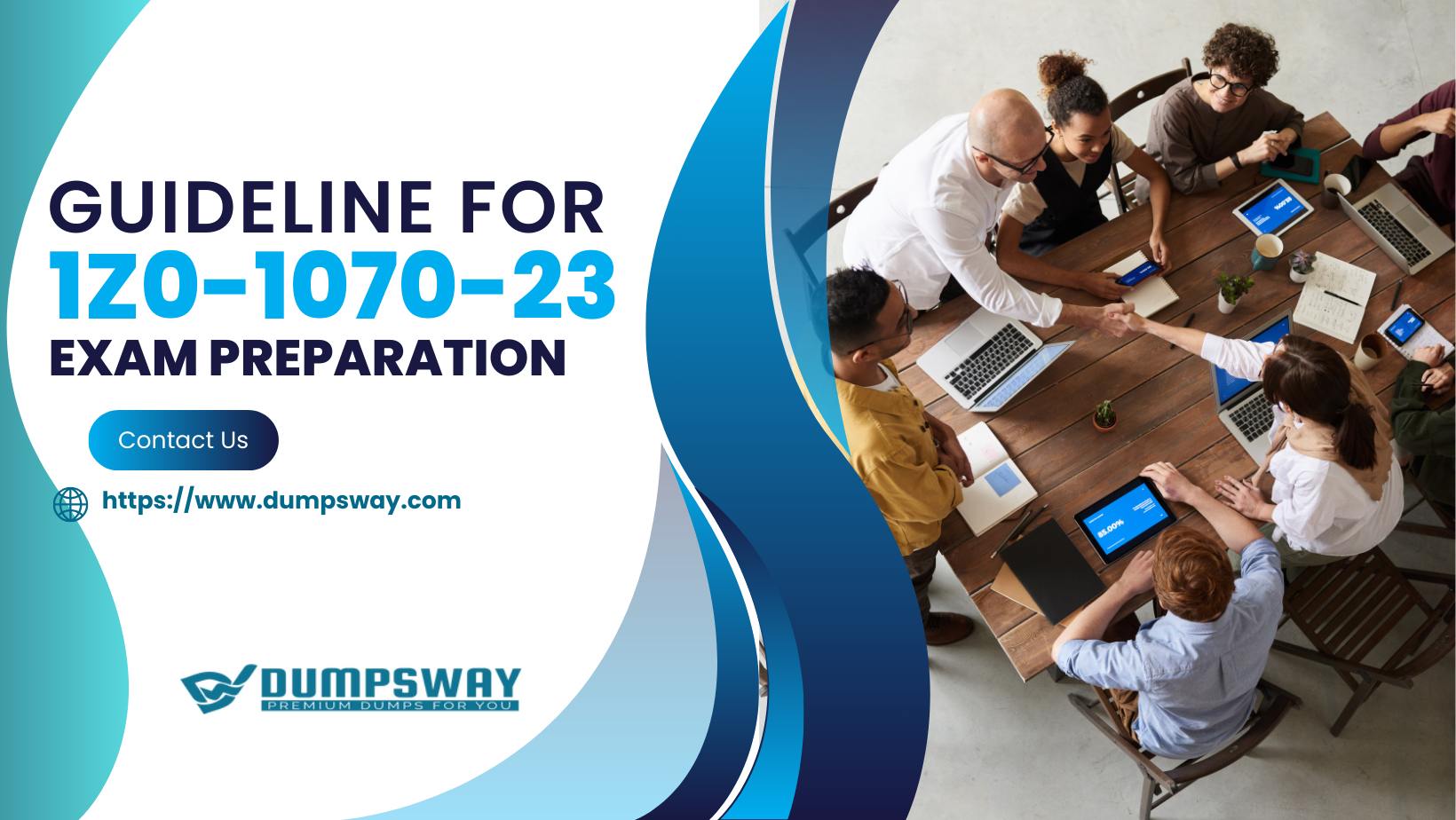Oracle certificates are the certificates that are presented by Oracle Corporation. Oracle is a well-known worldwide enterprise software company that provides database management systems and cloud services. Oracle also provides certifications for several Oracle products, including Oracle Database, Oracle Java, Oracle Cloud, and Oracle Applications. The purpose of these certificates is to verify the abilities and knowledge of IT workers who use Oracle technologies. Oracle certificates are good for getting good jobs.
Importance of Oracle Certificates:
- Oracle certificates enhance the opportunity to learn Oracle best.
- Oracle certificates show knowledge and skill of Oracle software which increases job opportunities for the people.
- Oracle certifications help people enter the job market and make them confident in their abilities.
- Gaining an Oracle Certification proves your devotion to professional development and becoming an expert in Oracle technologies.
- Oracle-certified people earn more money due to their skills than non-certified people.
- During earning an oracle certificate people learn how to carry out complex and practical tasks through practice, study, and lab sessions.
- Through Oracle certifications, people become familiar with a wide range of important features, operations, and activities that they use in the workplace.
- As Oracle certifications are recognized by many big organizations, people holding Oracle certifications can easily apply for international jobs.
- Gaining an Oracle certification can increase the trust that employers and clients have in your skills.
- Oracle certificates help you to stay updated with the latest Oracle technologies and advancements.
1Z0-1054-23 (Oracle Financials Cloud: General Ledger 2023 Implementation Professional):
The Oracle Financials Cloud is a professional certification based on performance and multiple-choice questions. To achieve these certificates you will need to pass all the sections. To pass 1Z0-1054-23 exams it is important to study all the topics thoroughly and the guidelines provided by Oracle. Some of the exam topics are discussed below:
1. Chart of accounts:
A chart of accounts is the structure for managing financial information and reporting. It also records and supports financial transactions. The chart of accounts facilitates data from different operations and business flows. The best practice of chart accounts helps in managing reporting requirements and making decisions about data storage.
2. Process Intercompany Transactions:
Intercompany transactions are the transactions between two entities in an organization. This helps you to track and adjust intercompany transaction details across the account. Intercompany transactions include sales and purchases, loans and bonds, and transfer of assets to parties. Intercompany transactions are an effective way to identify, report, and reconcile intercompany account transactions.
3. Close Monitor:
The close monitor provides information about the close status of the accounting period across multiple products. Close monitor summarizes the high-level income status for each entity. The close monitor shows the number of subunits by the module of the ledgers.
4. Managing Account Hierarchies:
Oracle Fusion applications use tree functionality to construct account hierarchies. Every hierarchy of accounts is characterized as a tree with one or more versions. Tree versions are used to record changes in account hierarchies that occur over time. You should have to take into account the various hierarchy requirements for financial reporting, allocations, revaluations, cross-validation criteria, and chart of accounts mapping before establishing hierarchies.
1Z0-1080-23 (Oracle Planning 2023 Implementation Professional):
Another exam that you have to pass for Oracle certification is 1Z0-1080-23 exam. This certification allows people to manage Rules, Forms, Dashboards, Infolets, and Navigation Flows; set up Planning Security; maintain Planning; configure Financials, Workforce, Capital, and Projects; set up Models; maintain Planning; configure Intelligent Performance Management (IPM); and manage Approvals. People can also manage Dimensions, Metadata, and Data. It is strongly advised to get current training and either field experience or other practical training. Some exam topics are discussed below:
1. Design business rules and rulesets:
Business rules are the instructions that outline important business decisions and company choices. Business Rules are used for management, modification, transparency, availability, and rule inquiry throughout the organization. They include the rule editor, rule browser, rules engine, and rule repository. Rulesets are the Oracle Business Rules that contain IF-THEN rules and decision tables. Java package is a ruleset that offers a namespace for rules and decision tables.
2. Strategic Modeling:
Strategic modeling is a method that combines a wide range of features for financial forecasting and display features with the ability to build and analyze situations quickly. It helps their users in fast modeling and assesses financial situations and provides capital structure management.
3. Cloning Planning Environment:
The Clone Environment feature is a screen-based method for copying an environment, which includes Narrative Reporting environments. It can also optionally copy the contents of the inbox, outbox, and stored images, as well as identity domain elements (users and specified role assignments).
4. Manage Planning with EPM Automate:
EPM automation helps users to perform work remotely in the Oracle Enterprise Performance Management Cloud environments. EPM administrators can automate many functions including importing and exporting metadata, uploading files into the environments and deleting files from the service, running business rules on the data, generate data management reports and many others.
1Z0-1094-23 (Oracle Cloud Database Migration and Integration 2023 Professional):
The Oracle 1Z0-1094-23 exams are for those candidates who have some experience and know-how to Oracle Data Management Technology and want to increase their career with Oracle Cloud Database Migration and Integration 2023 Certified Professional (OCP) credential. The Oracle 1Z0-1094-23 exams are the proof of your grip on Oracle Data Management Technology and this will increase your future progress. To pass these exams you must have to study exam syllabus topics some are discussed below:
1. Migrate using SQL Developer:
Oracle SQL Developer includes migration capabilities and users can move database objects and data from IBM DB2, MySQL, Microsoft SQL Server, Microsoft Access, Sybase, and Teradata to Oracle.
2. Migrating to Autonomous Database:
Oracle Autonomous Database is created to make it simple for you to upload source files to the cloud and supports both the Oracle Cloud Infrastructure APIs and the command-line interface. It includes operations like auto operation, Oracle data pump operations, database scheme operation, and encrypt password operations and many more.
3. Zero Downtime Migration (ZDM):
Oracle Zero Downtime Migration is an easy and systematic method for transferring Oracle Databases to Oracle Cloud Infrastructure (OCI). Oracle Zero Downtime Migration can easily and directly migrate Oracle database to any Oracle-owned infrastructure which includes Exadata Database Machine on-premises, Exadata Cloud at Customer, and Oracle Cloud Infrastructure.
4. Recovery Manager (RMAN) to migrate to OCI:
Oracle RMAN is used to migrate data to a database. For migrating data using RMAN you have to make a complete backup of the source database, save and protect the files, transfer files to AWS in the best possible way, restore the RMAN backup, and capture small backups from the source and apply them to the destination database until the migration can be completed.
1Z0-1056-23 (Oracle Financials Cloud: Receivables 2023 Implementation Professional):
The Oracle 1Z0-1056-23 exams are the exams for obtaining Oracle certification in which professionals have shown the knowledge and skills needed to implement Oracle Cloud Financials Receivables. People with this certification are able to construct receivables, manage customer billing, operate customer payments, manage bills, report and organize advanced collections. To pass this exam you need to study the topics and guidelines provided by Oracle. Some exam topics are discussed below:
1. Configure Receivables:
Oracle Receivables are the solutions used to accelerate the processing of invoices, receipts, and customer deductions. In order to fulfill the needs of the global market it offers the flexibility, strategic information, and powerful financial controls that help develop corporate and financial discipline. It also enhances cash flow, boosts productivity, and improves customer interactions.
2. Managing Customer Billing:
Using Oracle Fusion Bill Management, you can set up bill management to operate the different accounts receivable procedures, including credit memos, online payments, maintain monitoring, and review of pending transactions.
3. Configure Advanced Collection:
Oracle Advanced Collection helps to collect money faster with less effort and this increases the efficiency of collection by reducing the gap between back-office transactional data and front-office customer management procedures. It also enhances cash flow, improves productivity, improves customer interactions, and promotes financial and organizational control.
4. Manage Lockbox:
The lockbox facilitates the data that you receive from the bank using lockbox file transmission to make sure that the file was received and there are no duplicate receipts within a batch. Lockbox also facilitates the customers and transactions.
1Z0-1050-23 (Oracle Payroll Cloud 2023 Implementation Professional):
Another exam that you have to pass for Oracle Certification is 1Z0-1050-23. Those who get these certifications are able to recognize the fundamental ideas of Oracle Global Payroll that are necessary for a successful implementation, set up Global Payroll through data entry and standard payroll procedures, and implement payroll using Functional Setup Manager. Some topics that are studied for 1Z0-1050-23 are discussed below:
1. Configure a payroll definition:
Oracle Payroll (part of Oracle Cloud HCM) is basically a complete solution for your HR process that allows compliant, and flexible payroll worldwide and no matter whether it would be of industry, company size, or worker type. Oracle also helps in the payroll process and improves coordination between HR, Finance, and Operations.
2. Payroll Cost Flexfield Setup:
Oracle payroll cost flex field setup is used to collect cost information of the employee and transfer to GL. Setting up a flexfield helps you to define the appearance and meaning of specific sections.
3. Calculate and Verify Payroll:
The main purpose to calculate and verify payroll is to maintain and calculate the pay of employees on a daily basis. You can also perform other payroll tasks to make sure of the accuracy and provide flexibility for organization.
Conclusion:
In this article, we try to elaborate on the importance of Oracle certification and how people get benefits from it. It can open career opportunities and show your expertise in Oracle software which increases your credibility and gives access to different resources. Oracle certifications offer an excellent choice for IT professionals looking to make a name for themselves in Oracle technologies.


